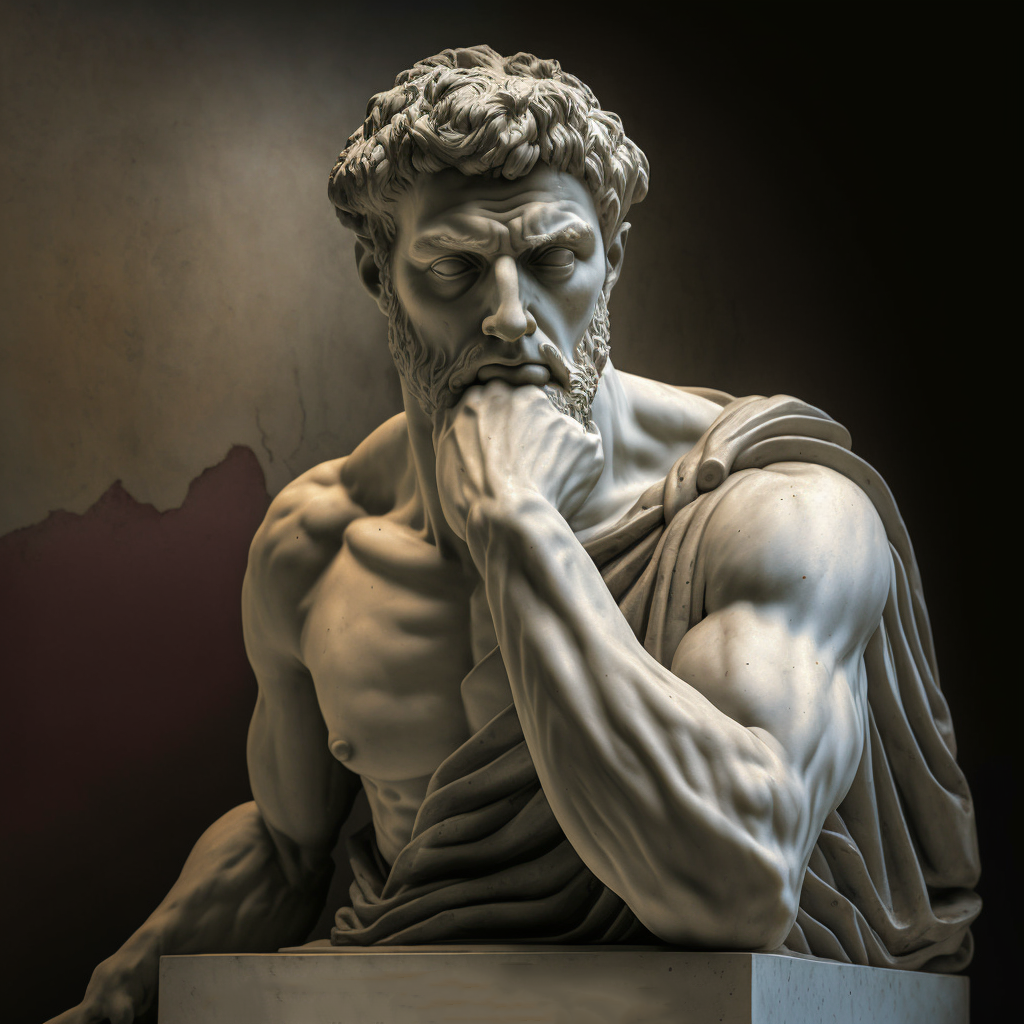Stoicism is the philosophy of the acceptance of circumstances as they are and not what we wish they were. Stoicism is the art of not indulging in unhelpful emotions. Stoics are pragmatists that see no purpose in dwelling in negative emotions like regret, jealously, and worry to name a few.
Stoics don’t cry over spilt milk, they would instead focus unemotionally on how to get more milk. Or whether they even needed any milk in the first place.
Does Stoicism make you emotionless?
Stoicism doesn’t eliminate all emotions. What Stoicism does is create a framework for challenging emotions through the application of reasoning as they are experienced. Stoics identify that most emotions are completely unfounded and due to incorrect beliefs or ego.
Stoics maintain an equilibrium with their emotions, they don’t swing from euphoric highs to depressed lows, or have fits of rage. Stoics maintain a balanced emotional setting that moves little regardless of their circumstances. They don’t experience the same emotional highs of ordinary people but they also don’t experience the emotional lows either. Their emotional stance is the middle way of calmness, thoughtfulness, and logic.
We can’t control what happens to us, what we can control is first how we interpret those events and then how we react to them. How we see the world determines much of our emotional reactions. Stoics choose their beliefs carefully. The stoics focus more on a realistic mindset than a positive mindset. They filter reality through appreciation and gratitude which prepares them for negative experiences.
Stoics are not emotionless, instead they have a way of looking at the world that keeps their emotions consistent due to the way they think about their circumstances. Stoic philosophy is about seeing the world through a larger perspective and viewpoint. It’s our interpretations of what happens to us that cause emotions more than the events them self. We are more upset when unexpected bad things happen to us than when expected bad events occur. Most emotions arise from not accepting reality for what it is and having a desire for it to be different.
Most emotions are a result of the ego, desires, and interpretations of events, the world, and our life. Stoic philosophy seeks to change the way we see the world and ourself. The core of stoic philosophy is acceptance, reason, and mindfulness in the moment.
How do you become a Stoic?
The Stoics divided virtue into four main types: wisdom, justice, courage, and moderation.
- Wisdom is the ability to separate what is internal from what is external.
- Justice is our duty to other people, and to our society.
- Courage is the ability to persist in what we want and resist what we don’t want.
- Moderation is having what is essential and having what is enough.
The key to practicing stoicism is expectation. If we already know bad things will happen and expect things just based on how the world works and the probabilities the events will occur eventually, they are not as emotionally impact when they happen. Stoicism is the practice of acceptance, mindfulness, and logic in all circumstances.
Stoics believe in imagining some worst case scenarios in their life vividly and understanding that they can survive it and this prepares them to be able to emotionally manage and deal with lesser problems with a broader perspective. Stoics believe is maintaining a deep appreciation daily for the food they eat, the bed they sleep in, and the things they have. This mindset of gratitude helps buffer stress and emotions and cultivate appreciation.
Stoics focus on their internal mental lives more than having external things. Stoics like simplicity and minimalism over trips on the hedonic treadmill to nowhere in an attempt to find happiness in material things and physical experiences. Stoics want to create a lifestyle of enough through simplicity. They achieve satisfaction through having less needs and desires not trying to fulfill a growing list of wants.
“Learning to live with less will create space in your life for the things that truly matter to you.” – Seneca
Why is Stoicism so powerful?
Stoics place their happiness and contentment on internal factors within their control and not external factors dependent on other people, things, and circumstances that are outside their control.
Stoics separate the world into what they can control and what they can’t control and focus their energy and effort into the things they can control. They don’t waste their energy, time, or focus on the things that they have no input over the outcome of.
Stoics find value in their self and others based on what they are, human beings. They highly value logic, reason, principles, morals, science, and history as guides. They place less value on external things and more value on internal things. They value people over things. They trust the mind more than emotions. Emotions are seen by stoics as transitory messages to listen to but not dwell on. Stoics believe purpose and meaning can help people live more fulfilling lives.
Stoicism is so powerful because it allows the person practicing it to overcome their emotions and ego in favor of their mind and logic. A disciplined mind can create a much better life than emotions, impulses, and desires. The Stoics believe that the power of right thought leads to the right action and emotions blur proper thinking. The Stoics develop their mind to be more powerful than their emotions through the filter of their mental model of seeing the world as it is and not as they wish it would be.
Stoics believe that stewing on emotions and allowing them to overtake your logic and reason is a useless exercise with no value. Stoics also believe that to be driven by your ego to look good in the eyes of others is also a pursuit with no value when it’s more simple to be yourself at all times. Stoics value their self through their own internal scorecard based on their own efforts, incentives, and values not what someone else’s opinion is. Stoics are driven in their thoughts and beliefs internally and not influenced much by external forces.
Acceptance is one of their greatest powers as it allows them to quickly move on from events by leaving them in the past and staying in the ever evolving present moment.
Stoics can become undefeatable because they play their own game in life by their own rules.

